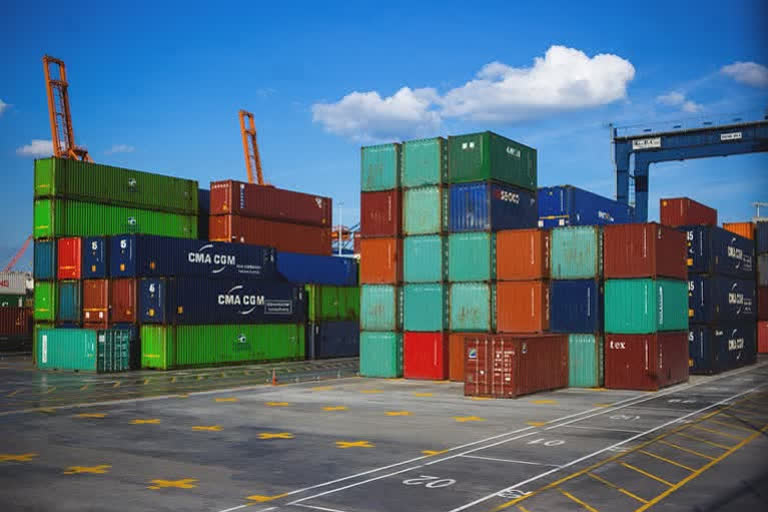New Delhi: Amid the country’s ongoing battle with highly contagious Sars-CoV-2 virus, which destroyed economies and livelihoods across the world, India’s commerce ministry this year focused on Atma Nirbhar Bharat (self-reliant India) by curbing the unnecessary imports, particularly in those sectors that are labour intensive or result in significant outgo of foreign currency on import of consumption items.
In 2020, as Prime Minister Narendra Modi called for an Atma Nirbhar Bharat to turn the adversity caused by the Covid-19 global pandemic, the ministry of commerce imposed restrictions on items where domestic capabilities exist such as Aggarbatti (scented sticks), new pneumatic tyres, power tillers and components and colour television sets, among others.
In a major development, the ministry also formulated technical regulations for 176 product lines (worth $ 49.9 Billion) this year and the regulations for another 371 products are under formulation.
In order to improve the ease of doing business ranking, the ministry was able to reduce the time taken in completion of an investigation from 281 days in 2018-19 to 234 days in the current financial year. Earlier, this kind of investigation usually used to take more than a year.
The ministry was also able to introduce a steel import monitoring system this year despite the difficulties caused by the outbreak of novel coronavirus.
Curbing Non-Essential Imports
This year, the ministry imposed restrictions on import of those items where either domestic capacity existed or could be developed in partnership with the industry. It not only encouraged the domestic production but also restricted imports of items such as Gold and Silver products, bio-fuels, Aggarbattis, new pneumatic tyres, power tiller and components and colour television sets etc.
Imports of items such as cut flowers, natural rubber etc are being discouraged by imposing port-restrictions. In addition to this, in order to reduce the imports of items such as toys and LED products and DC or AC supplied control gears for LED modules, these imported items have been now subject to compliance of BIS standards.
In a major decision, the import of ACs with refrigerants and writing and printing paper have been prohibited.
Between April 1 and December 30, 2020, the government initiated 43 anti-dumping investigations, 4 countervailing duty investigations and 1 safeguard investigation.
The DGTR issued final findings in 23 anti-dumping investigations and four safeguard investigations and preliminary findings were issued in 11 investigations during this period.
Helping hand in fight against Covid
In the initial days of Covid-19 outbreak, the country was dependent on import of critical pharmaceutical ingredients from abroad, particularly from China.
However, despite the supply side disruptions, the country was able to emerge as the world’s pharmacy during the Covid-19 pandemic and supplied Hydroxychloroquine to nearly 114 countries that sought India’s help in their fight against the deadly virus.
The Directorate General of Foreign Trade (DGFT) tweaked both export and import policy of sensitive medical inputs to ensure adequate supplies within the country.
The country supplied around 45 tons and 400 million tablets of hydroxychloroquine to around 114 countries globally.
Indian producers also supplied around 96 million tablets of Paracetamol, 0.4 million of suspension IP, 0.8 million bottles and 270 metric tonne, in various other forms were made to 24 countries, along with supplies of other essential materials to nearly 57 countries.
PPE kits and other protective equipment
The ministry supported the industry to develop a PPE production capacity to half million kits everyday from virtually nil production during the initial days of the pandemic.
The country also ramped up the production of alcohol based hand sanitizers, hand gloves and other protective equipments for domestic consumption and export during this period.
Relief to exporters
In a move that reduced the pain of exporters, the ministry extended the foreign trade policy to March 2021. It also extended the validity of advance authorizations by 6 months and also extended the export obligation period by six months.
Rs 3 lakh crore emergency credit line guarantee scheme (ECLGS) for giving collateral free loans to the MSME sector was extended by the government. A fund for equity infusion in MSMEs was created along with providing additional support to farmers via concessional credit.
Ease of Doing Business
As the lockdowns cut down the movement of people and goods, the ministry ramped up the use of digital platforms to support a new normal.
The government unveiled Electronic Platform for Preferential Certificate of Origin and it also persuaded other free-trade agreement partner countries to accept e-COOs (e-certificates). So far, more than 1.3 Lakh e-COOs have been issued from the e-platform.
The government also made duty exemption authorizations such as Advance Authorization and EPCG. These were made paperless and the digitally encrypted authorization data is auto-transmitted to Customs.
The government also implemented an Import Monitoring System (IMS) for Aluminum, Copper, Footwear, Furniture, Paper, Sports Goods, Gym equipment sectors. It also allowed 24x7 auto-generation of e-IEC (Importer Exporter Code) to boost the ease of doing business.
(Article by Krishnanand Tripathi)



